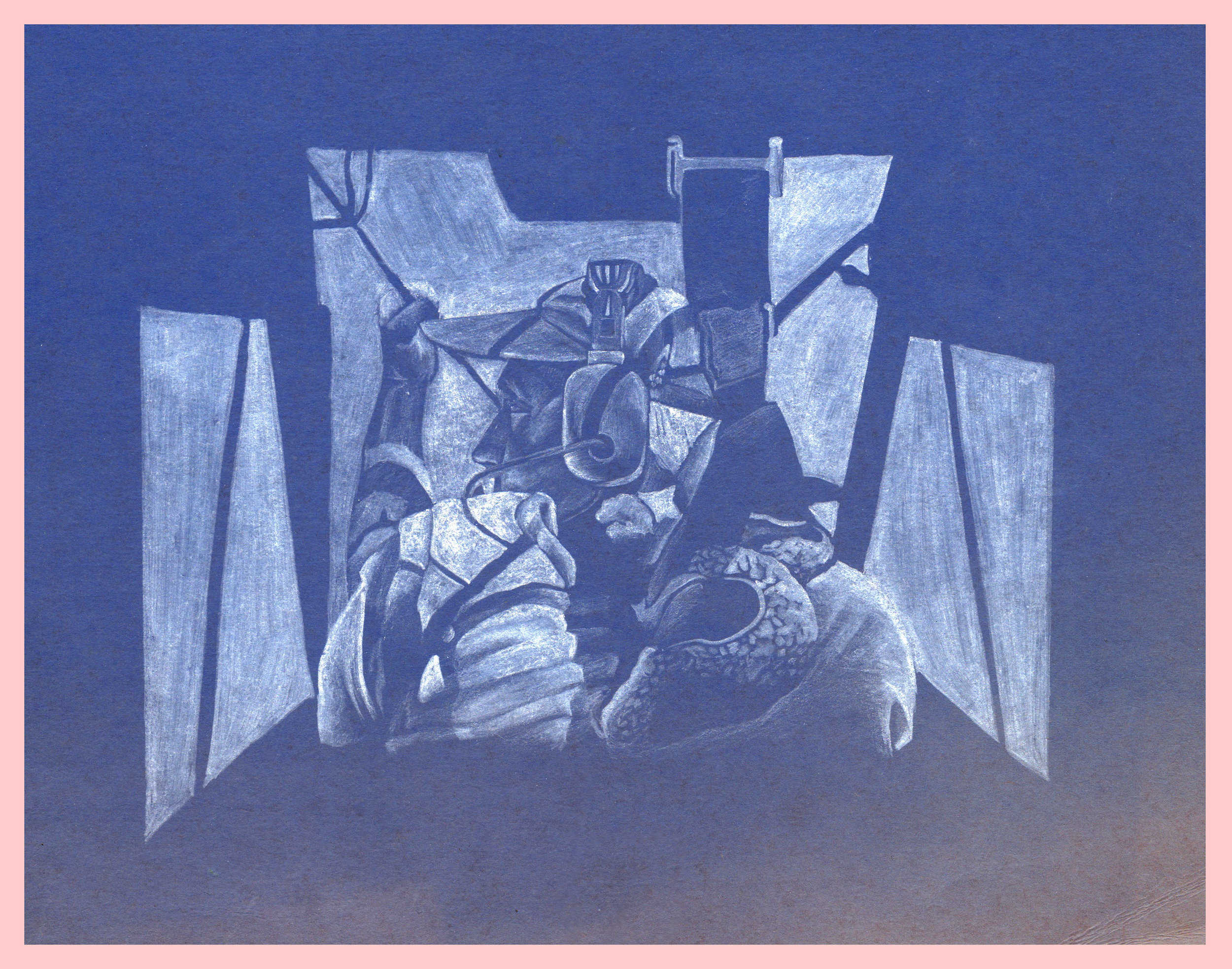1.02 Daisies
Aria Aber
Yes or no, yes or how I loved
to skip through papery monsoons
during my youngest days, before
wild chicory moistened the soles
of my hot feet—a slit for yes,
ant hill for no. I know: the pixelated
mush of my belonging to this day
a reverberation of that game—
yes or no, yessa-no, desayuno.
Strawberries and cream. My mind
so well-suited to thrust and thrust
into all I must forget. Once, I was
at a border, inhabiting a body which I
bordered, where I fingered
daisies, graphite, molasses,
broth—there, I dreamed of home
until I coaxed non-grata
to the bridge, until until. All this life
to gather courage to own & call
a thing a name. It came
in brackets, it came brackish:
yes, I was touched. I was a child.
There’s papyrus stretched across
the frame dividing the I of
then from the I of now: Oh,
I cannot save her now.
1.05 At Home in the Sky
Yanyi
Not knowing your gender, you are thrown
across eight windows, open, and I imagine
the feeling of air. Brimming in light,
your ordinary hat and arm thrusting forth
a microphone toward the sun. How do you do, sun?
Its black rods swing through the levitating logic.
I’m behind your back holding the overgrowing
darkness, lines, the chalky extent of room. Only
here: the house of knapsack with first lining
of winter. Some clothes. Peering in or peeled back,
you listen and don’t want to talk. No one knows
where you live, but I do.
